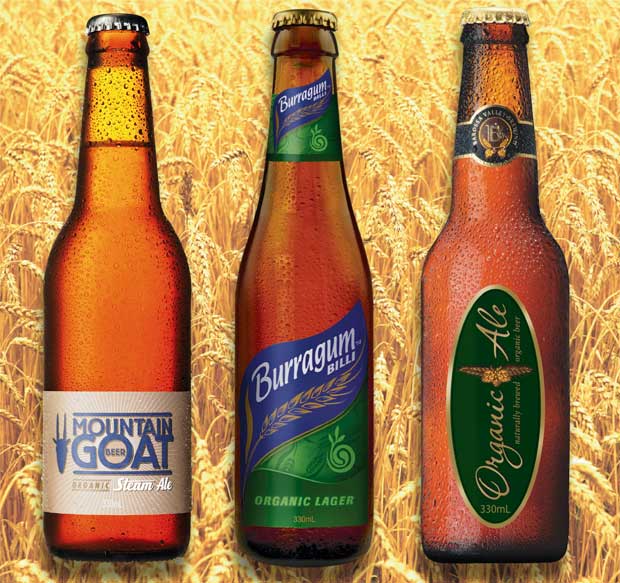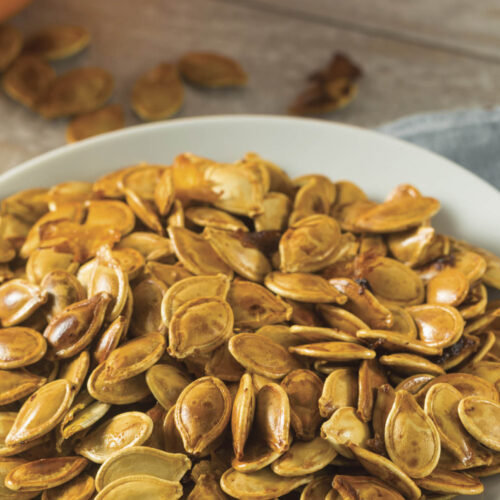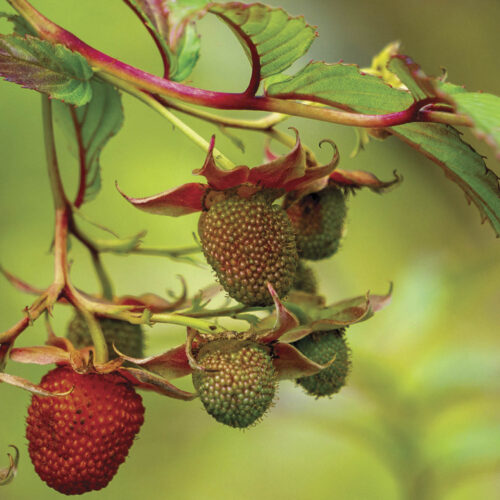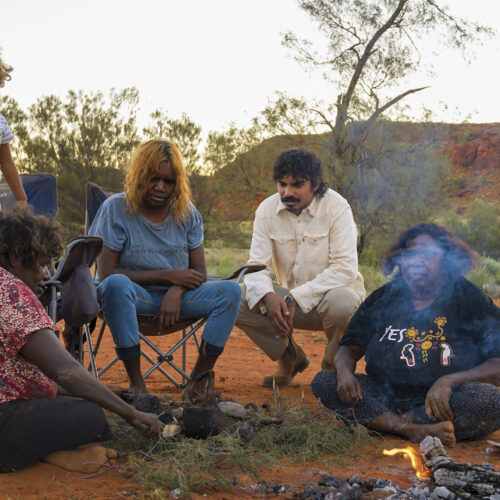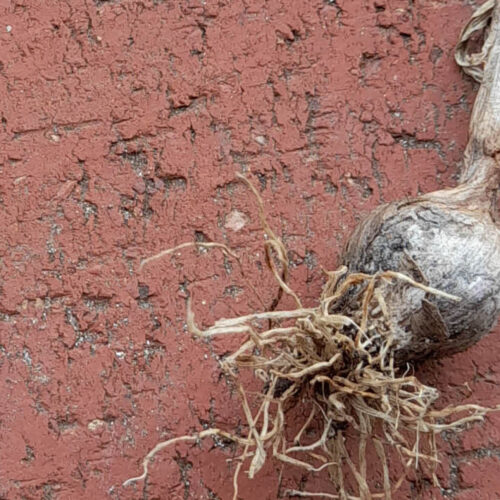Full steam ahead
2010-09-28T08:04:41+10:00
JOHN NEWTON laps up some great-tasting organic ales.
In 2001, I organised an organic fund-raising dinner. The only organic item I couldn’t find was an Australian beer – so I chose a New Zealand brand, Green Fern Lager (still available). The New Zealanders have some excellent organic beers (others include Founders, Emerson’s, White Cliffs and Mike’s) which we will cover in a future issue, but for now, nine years after my fund-raiser, we’ve managed to rustle up three Australian organic ales.
Mountain Goat Brewery
When Dave Bonighton came back to Australia 13 years ago after enjoying the small “craft” beers in America, he and his business partner Cam Hines (“he’s sales, I’m ales” says Dave) noticed there were basically two kinds of beerin Australia: heavy and light. They decided to do something about it, and set up the Mountain Goat Brewery in Richmond, Melbourne.
“The beers we loved were ales, darker ales with lots of fruity, hops character,” he says. That led to the Hightail Ale, their first amber ale, which, while not organic, was a handcrafted traditional English-style “real ale”.
They now make an organic beer, Steam Ale, replacing their organic pale ale. “It’s sort of a hybrid ale/lager style – we use an ale yeast and ferment it like a lager – fruity, crisp and clean,” he says.
If grape juice is the stuff wine is made from, malted grain (mainly barley) is what makes beer – and the better the malt, the better the beer. And it’s this that has been a problem for Australian organic beer brewers.
“I can get organic malt from Germany,” says Bonighton, “but there doesn’t seem any point in hauling malt halfway across the world to make organic beer. We need a diverse range of malts, and lately we’ve been using malt from Joe White Maltings in central Victoria.”
- Mountain Goat Organic Steam Ale: Pale colour, good head and a clean, hoppy nose. Thin mouth feel, yeasty and quite short, with a touch of liquorice at the end.
Burragumbilli
Chris Gordon trained as a geologist, but today he’s making an organic beer, Burragumbilli (plus a small amount of organic wine), at Koala Beer Brewery in Sydney. He also runs an organic farm in the Watagan Mountains, west of Lake Macquarie (NSW).
Of the beer, Chris says: “The actual brewing is simple and straightforward; it’s an all-malt beer with no added sugar and no flavour additives or chemicals.” The Burragumbilli website cites and adheres to the 1516 “German Beer Purity Law” Reinheitsgebot principle, which stipulated that a beer should contain only water, hops and barley.
Burragumbilli is made in the lager style – but, Chris says, “We’re planning to make an ale – that’ll be happening later.” He also has his eye on the export market. “We’ve had lots of interest in the UK and Vietnam, and we’ve had enquiries for an ale from Sweden.”
- Burragumbilli Organic Lager: None was available for tasting at the time, but it has been described as a refreshing, easy-drinking beer.
Barossa Valley Brewing
Meanwhile, down in the Barossa Valley, ex-banker Denham D’Silva is the owner and founder of Barossa Valley Brewing, where brewer Mark Prior makes an Organic Pale Ale in the American craft brewing style.
Denham, as you’d expect from an ex-banker, is concerned not only with the flavour and excellence of his brew (along with Mountain Goat Steam Ale, Barossa Organic Pale Ale won a Bronze medal in this year’s Australian International Beer Awards in Melbourne), but also with lobbying for the same equalisation tax the wine industry gets.
“With wine, the first $500,000 worth of sales are excise-free – for our organic ale, excise is about $12.50 a case from
the first case,” he says. If successful, this move would give a big push to those wishing to set up more small breweries
– which would, we can only hope, brew more organic beers.
- Barossa Valley Organic Pale Ale: Good honey colour, with leatherwood honey on the nose and the palate; creamy mouth feel, and a good length with a balanced bitter/sweetness.

